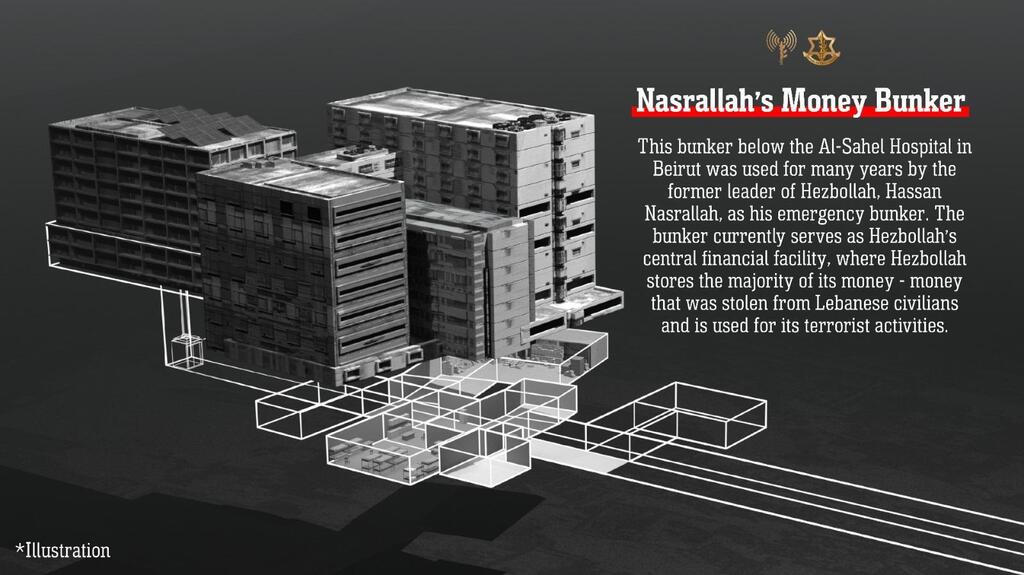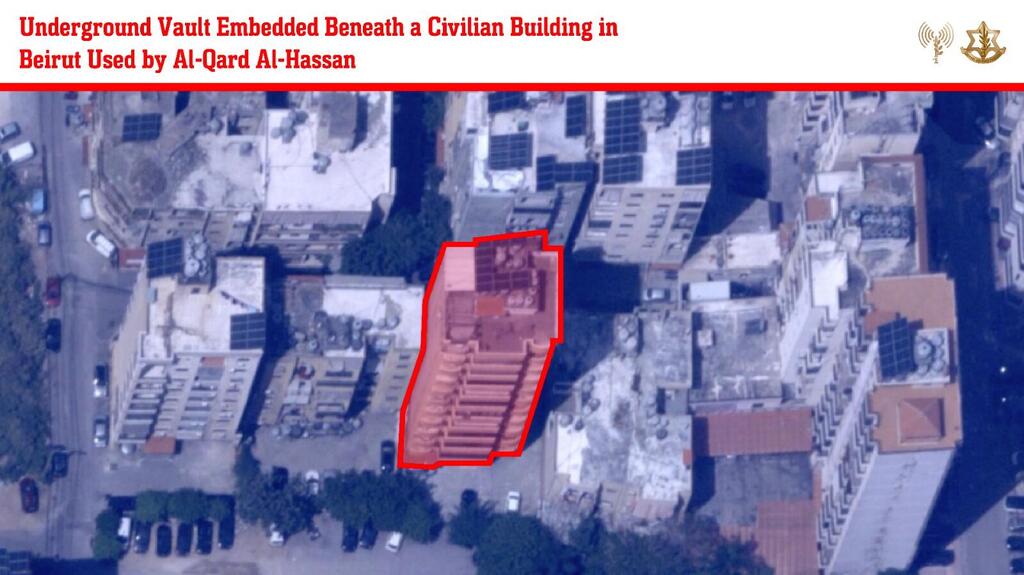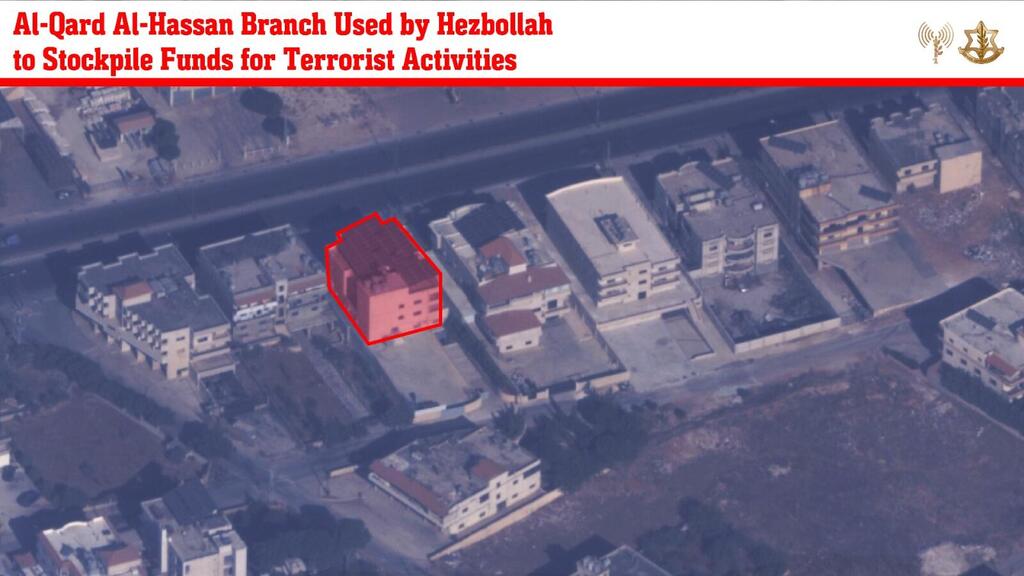Getting your Trinity Audio player ready...
Following a night of airstrikes targeting Hezbollah's financial network, the IDF unveiled Monday evening a massive underground bunker located beneath a main Beirut hospital, which serves as a key financial facility for the terrorist group.
In a press briefing, chief military spokesperson Rear Admiral Daniel Hagari presented a 3D illustration of the underground bunker, located beneath the Al-Sahel Hospital in Beirut, which serves as a central storage site for Hezbollah’s finances.
3D illustration of underground bunker, located beneath Beirut’s Al-Sahel Hospital, used as key financial facility for Hezbollah
(Video: IDF Spokesperson’s Unit)
The facility, reportedly used by the group's leader Hassan Nasrallah who had been assassinated in an Israeli airstrike in late September, is alleged to contain more than half a billion dollars in cash and gold.
"Lebanon has been mired in an economic crisis in recent years, and Hezbollah has exploited this to strengthen its grip on the country," Hagari said. "The facilities we targeted belong to Hezbollah and are disguised as civilian sites, but their sole purpose is to bolster the organization’s terror capabilities. Hezbollah has effectively created a state within a state."
3 View gallery


3D illustration of underground bunker, located beneath Beirut’s Al-Sahel Hospital, used as key financial facility for Hezbollah
(Photo: IDF Spokesperson's Unit)
Hagari revealed that the bunker, located at 7 Daram Street in Beirut, had been under Israeli surveillance for years. "This bunker, deliberately constructed beneath a hospital, houses at least $500 million in cash and gold. The funds stored here could have been used to rebuild Lebanon, but instead, they are used to rebuild Hezbollah," he said.
He also issued a warning: "Our aircraft continue to monitor the site, and we will keep tracking it. We call on Lebanese citizens, the Lebanese government and international organizations—do not allow Hezbollah to store money beneath hospitals."
illustration of IDF strikes on Hezbollah command centers and financial facilities
(Video: IDF Spokesperson’s Unit)
Hagari also reported that the Israeli Air Force struck over 20 targets overnight, most of them in Beirut's Dahieh district, a Hezbollah stronghold. One of the key targets was an underground financial warehouse used by the Al-Qard al-Hassan association, a financial institution affiliated with Hezbollah. Hagari confirmed that the facility held tens of millions of dollars in cash and gold, earmarked to fund the group's operations.
Hagari further outlined how Iran funds Hezbollah through three primary channels. First, oil and money are transferred from Iran to Syria, where the oil is sold, and the proceeds are funneled to Hezbollah through Unit 4400, a Hezbollah financial transfer unit. This method generates tens of millions of dollars.
Second, Iran flies cash to Lebanon under diplomatic cover, with proceeds from its Quds Force’s independent oil sales delivered directly to the Iranian Embassy in Beirut and then to Hezbollah.
The third method, according to Hagari, involves promoting economic ventures backed by Iran, including gas exports to Syria and the establishment of factories in Syria, Lebanon, Yemen and Turkey.
"This network was managed by Mohammad Jaafar Kassir, the commander of Hezbollah's Unit 4400, who we eliminated in Beirut earlier this month. A few hours ago, we also neutralized his successor in Syria," Hagari confirmed, referencing recent reports of a drone strike on a vehicle near a Damascus hotel.
Get the Ynetnews app on your smartphone:







